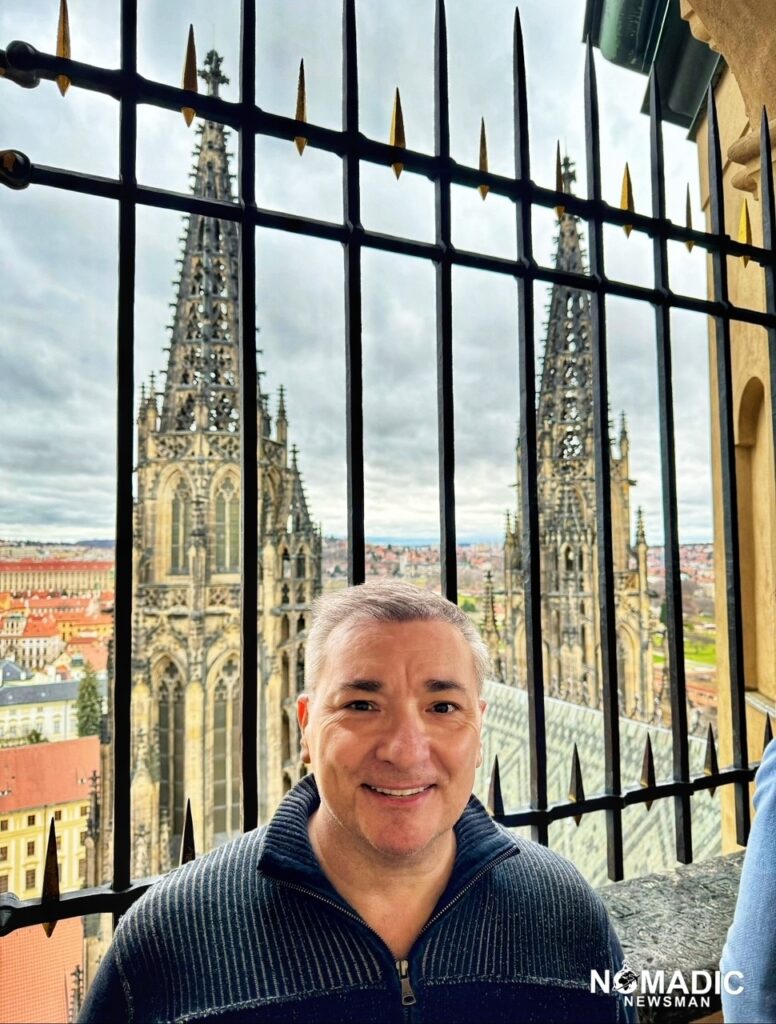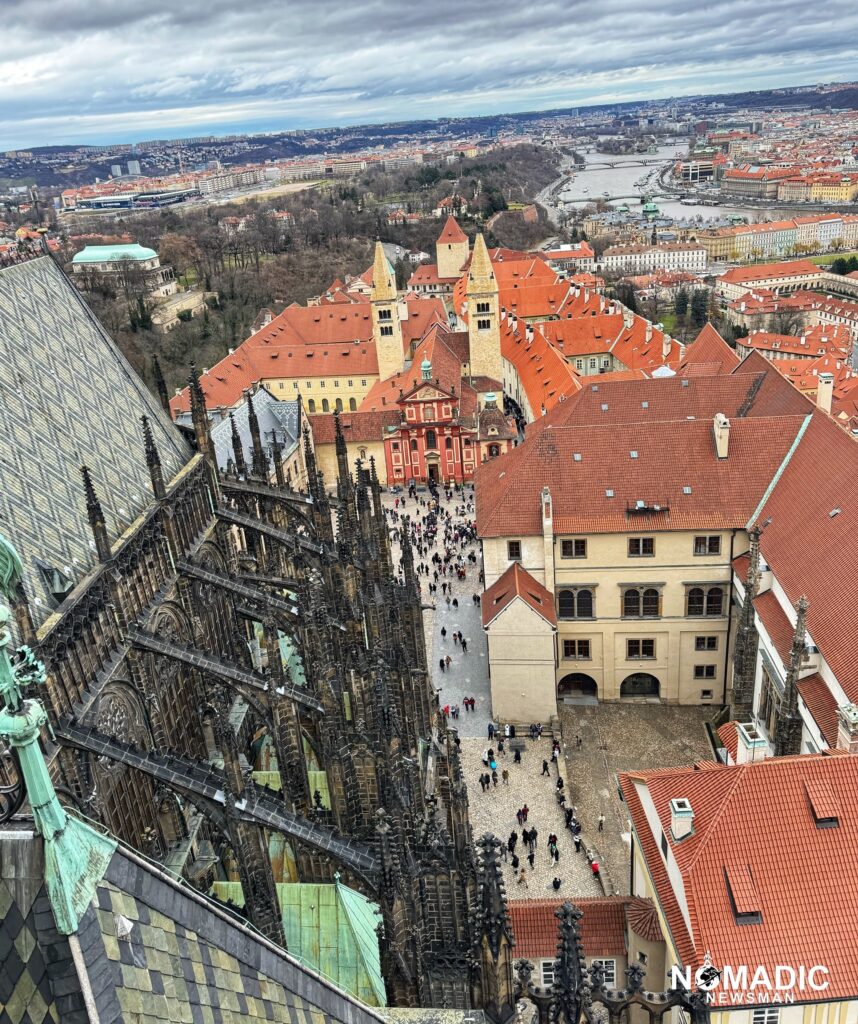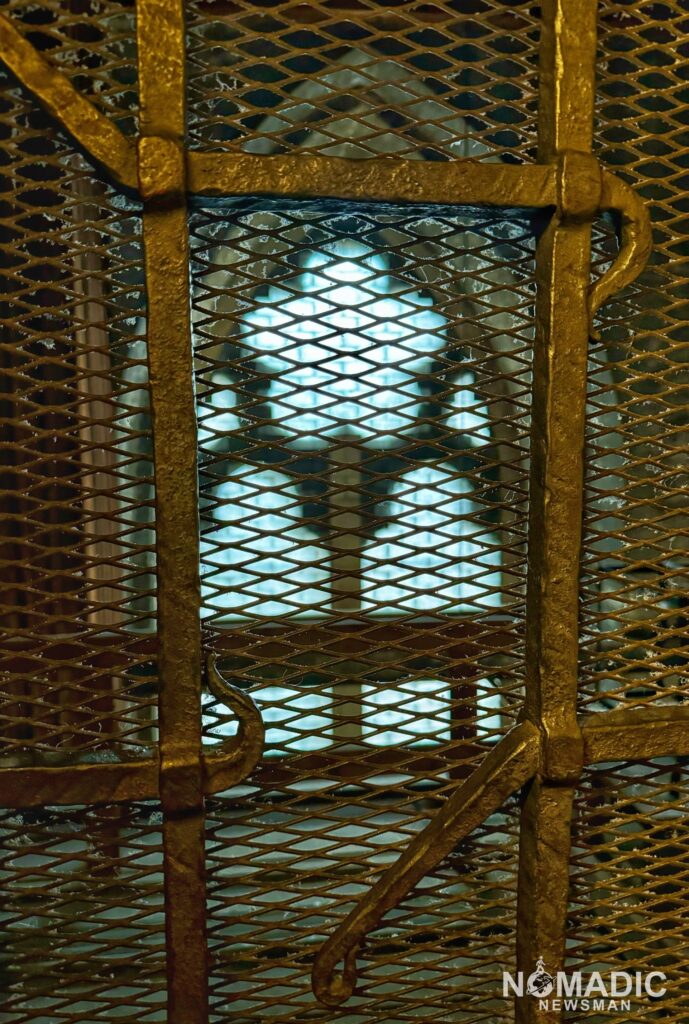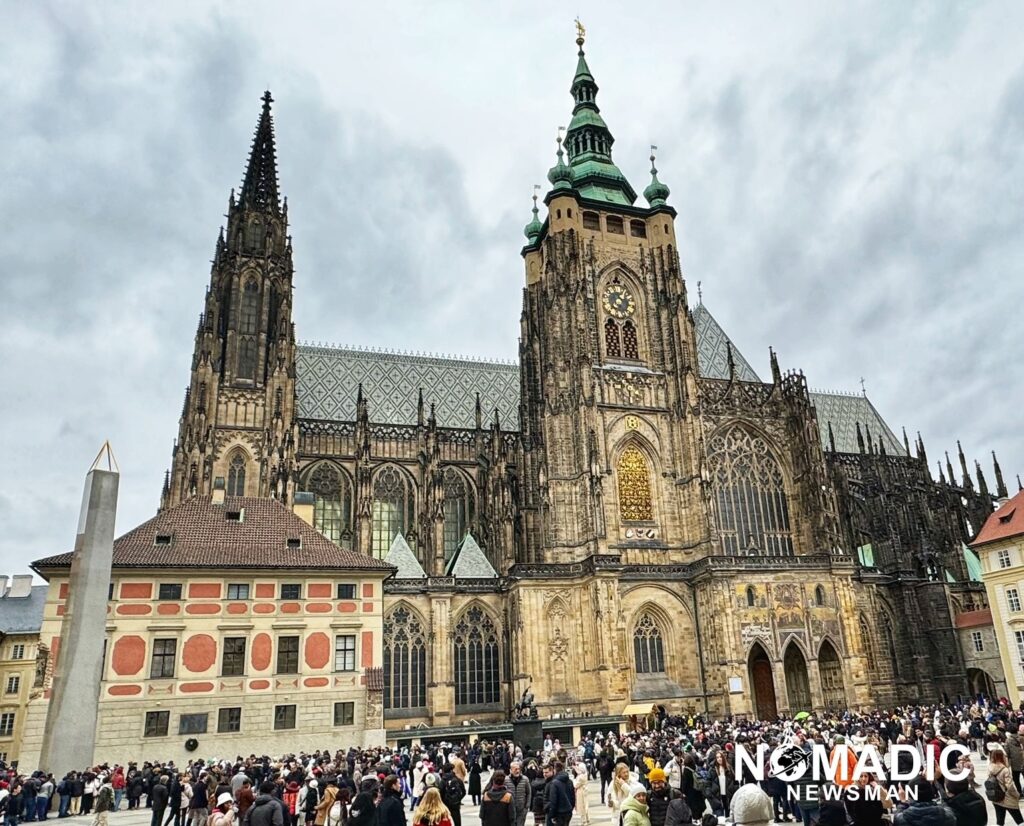

One of the cathedrals I visited in Prague on Christmas Day is St. Vitus Cathedral, home of the tombs of St. Wenceslas and Charles IV.
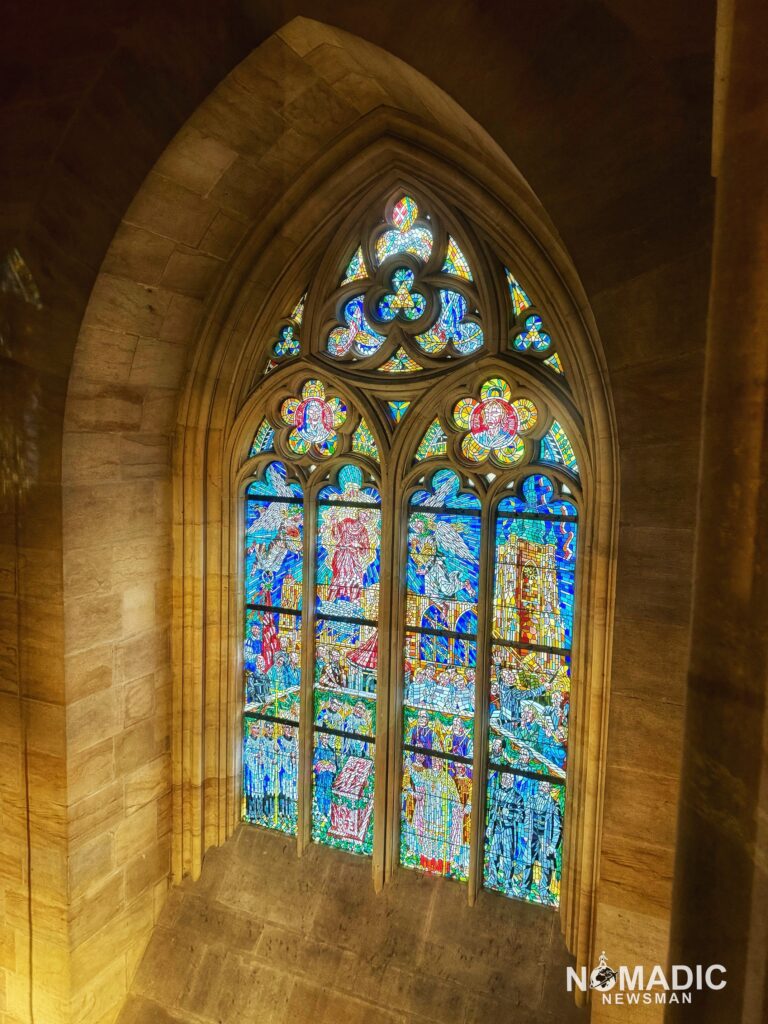

Just to clarify, since I got some pushback by pointing out the “Good King Wenceslas” was a mere duke. He was posthumously named “king” and “saint” by Holy Roman Emperor Otto I. So, the carol “Good King Wenceslas” is not wrong.
It is one of central Europe’s most lavishly endowed cathedrals, spanning nearly six centuries, holding great significance in Czechia’s religious and cultural fabric.


Prague Castle is believed to have been established around 880 by Prince Bořivoj of the Premyslid Dynasty (Přemyslovci). The UNESCO World Heritage site is recognized by the Guinness Book of World Records as the largest ancient castle complex globally, covering an impressive area of nearly 750,000 square feet (70,000 m²).


The Great South Tower, a focal point of Prague Castle, provides an opportunity to arduously ascend its spiral staircase for a captivating panorama of the city.
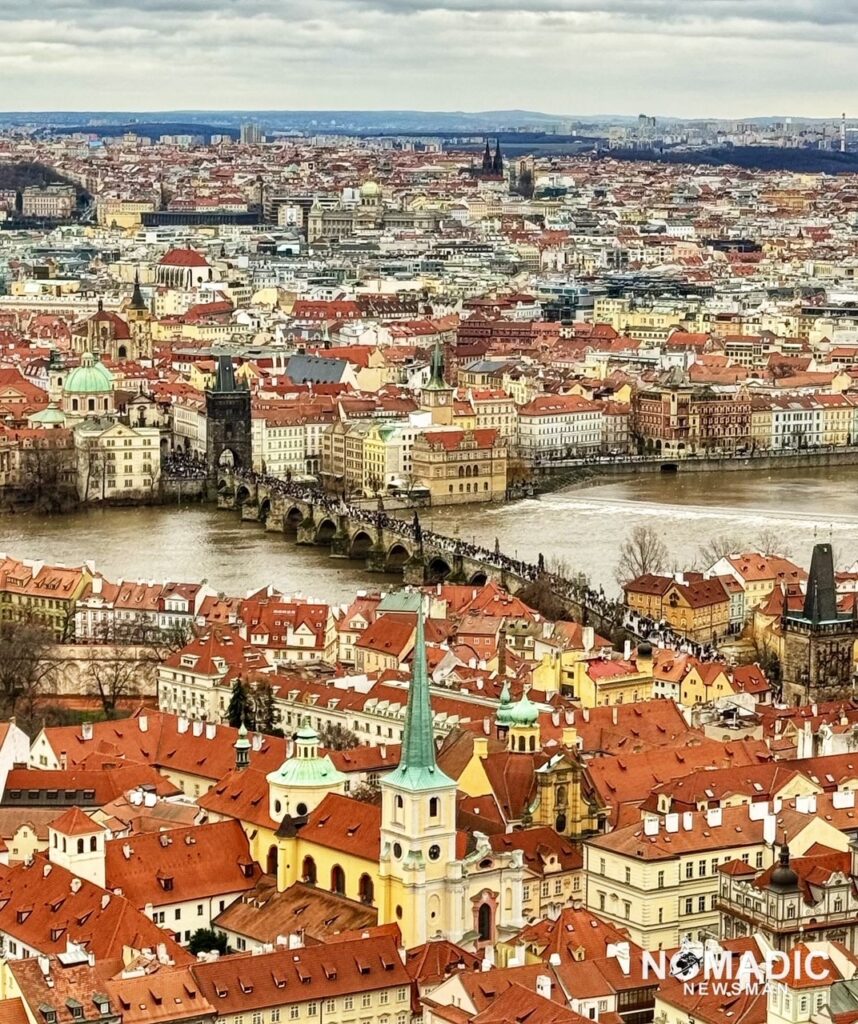

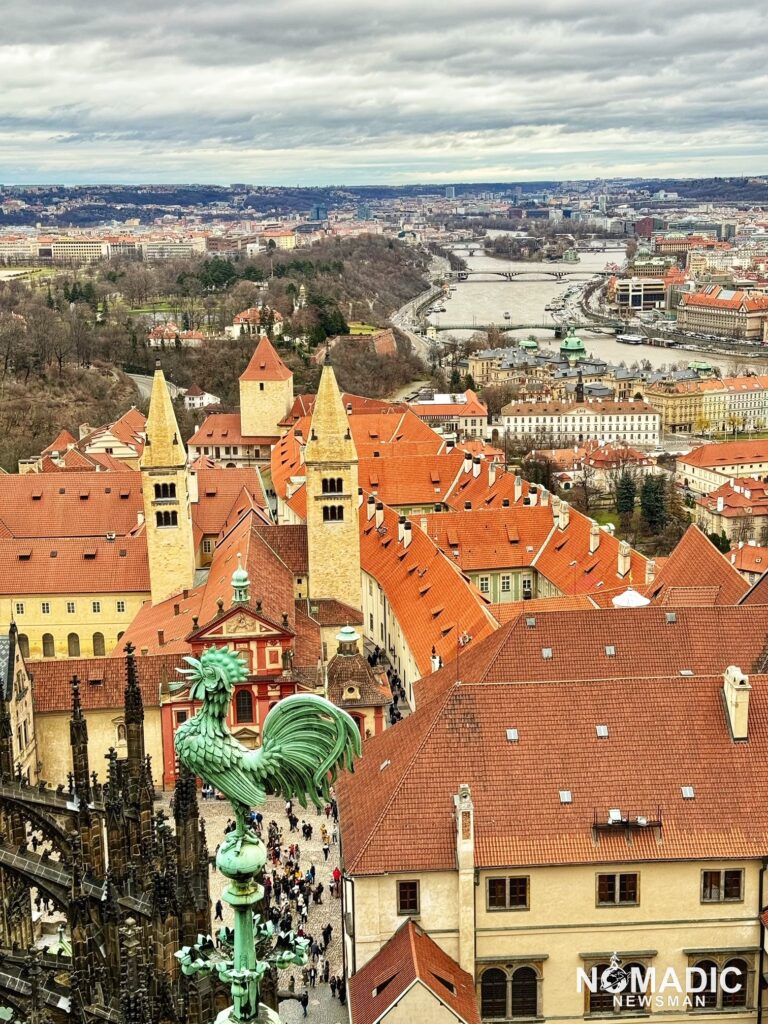

Each step reveals breathtaking (and I do mean literally “breathtaking”) views of Prague’s iconic landmarks, such as the Charles Bridge, Old Town Square, and the endless expanse of red rooftops.
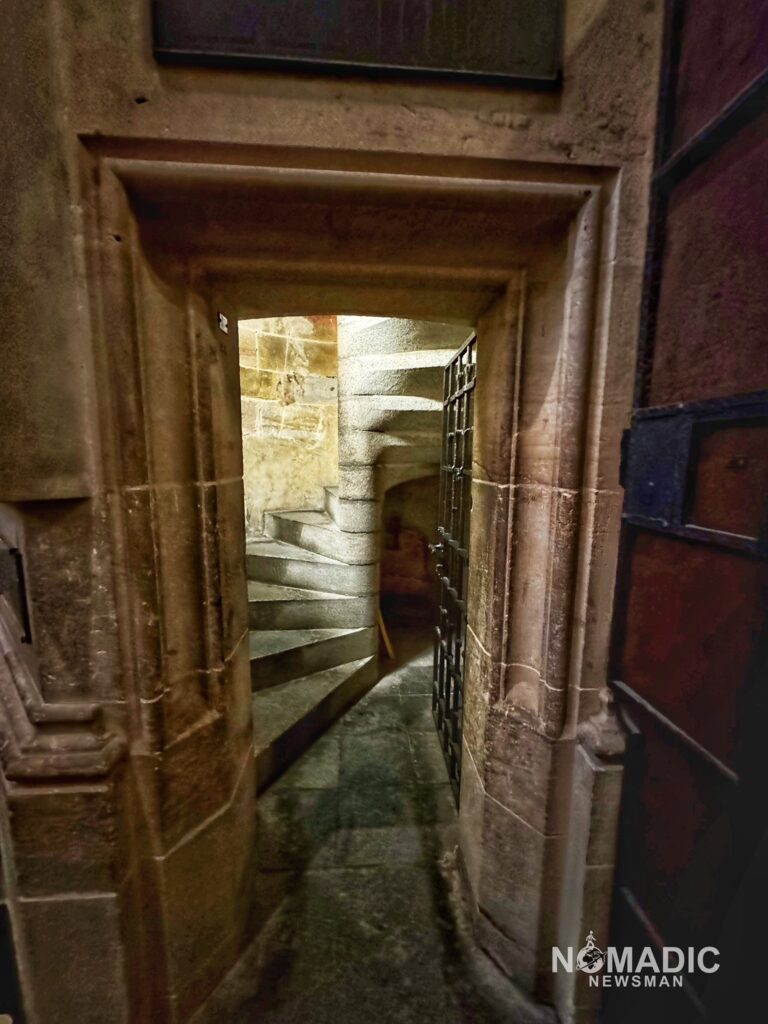

I was halfway up the nearly 300 spiral stone steps and didn’t think I would make it. I was relieved when I reached the top and saw some athletic young men collapsing breathlessly on the benches.


Given the opportunity, you should climb it if you’re able. I will not be joining you.
No one seemed to notice the glass-encased clockworks of the tower dating back to 1597.
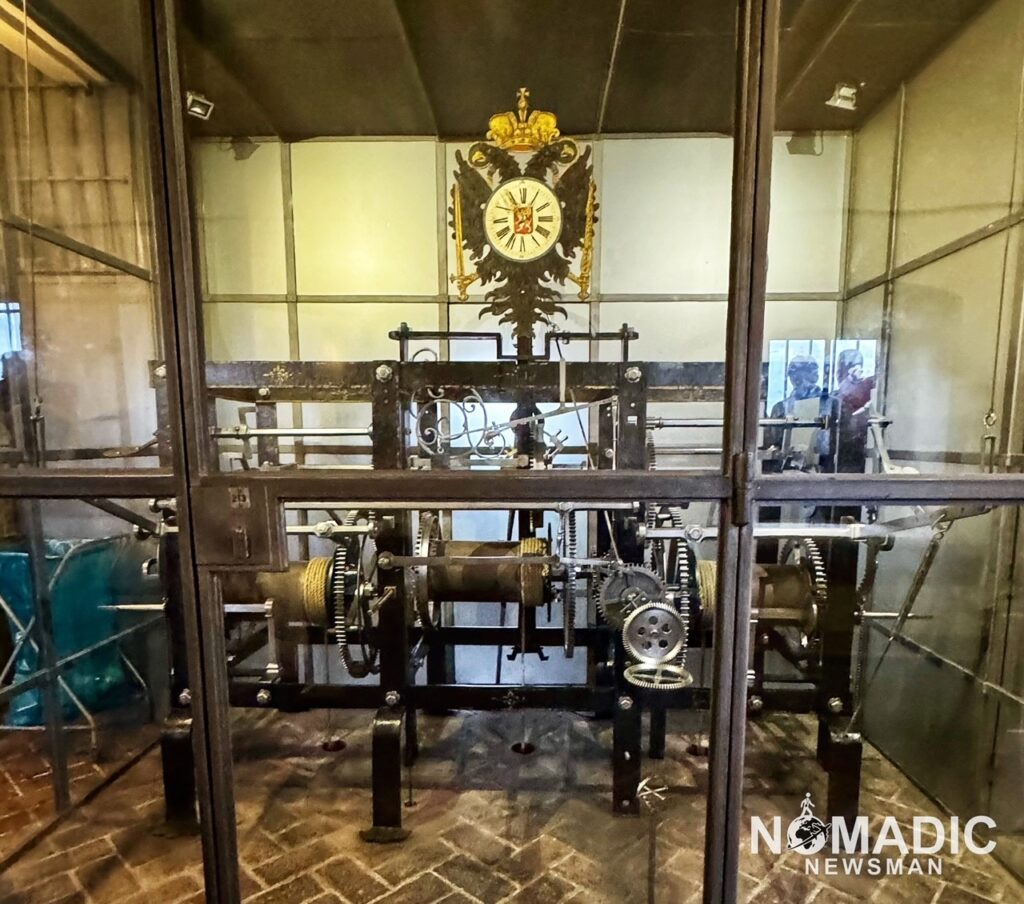

Also, on the way up, I stopped to catch my breath and looked through an obscure tower opening, and to my surprise, it was the belfry housing the Sigismund Bell, the largest bell in Czechia.


It reportedly weighs more than 66,000 pounds (30 tonnes), a little more than a typical adult Humpback Whale. It’s said to emit a deafening 120 decibels, in the range of a thunderclap or a jetfighter aircraft’s take-off.
The bell is rung by four bell-ringers, while two others control and slow its resonant heart. Rotated 90 degrees once every 150 years to prevent bursting, the bell remains unseen from the castle courtyard, yet when it tolls, a rushing sound wave engulfs onlookers like an approaching train.
